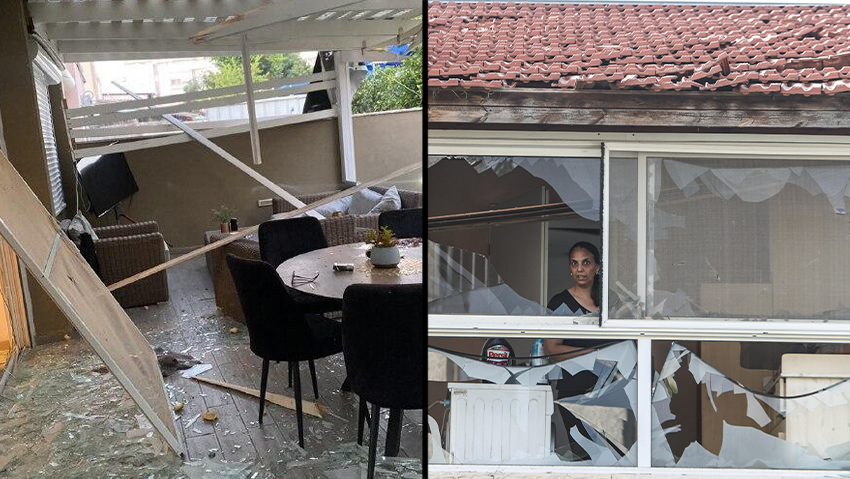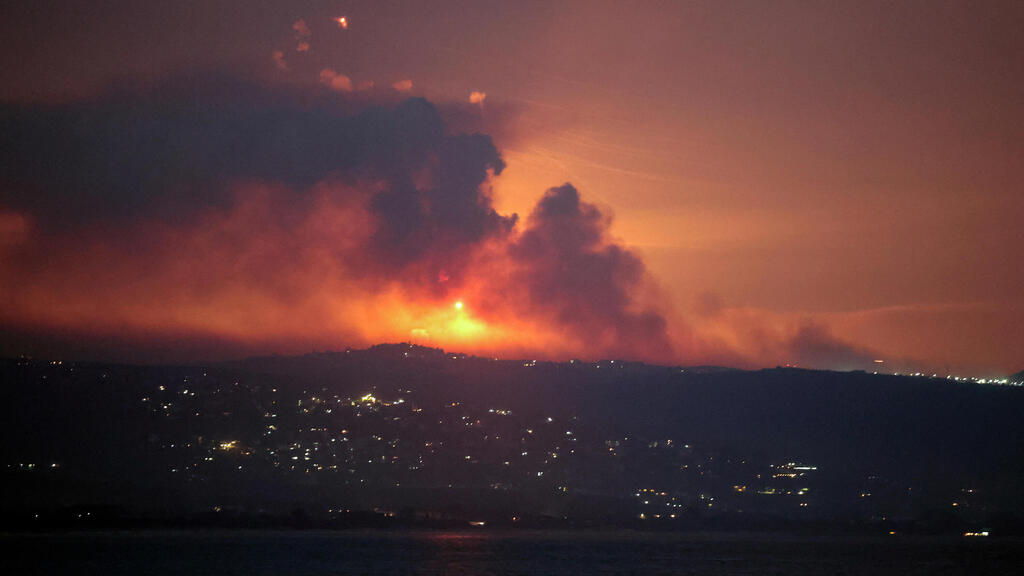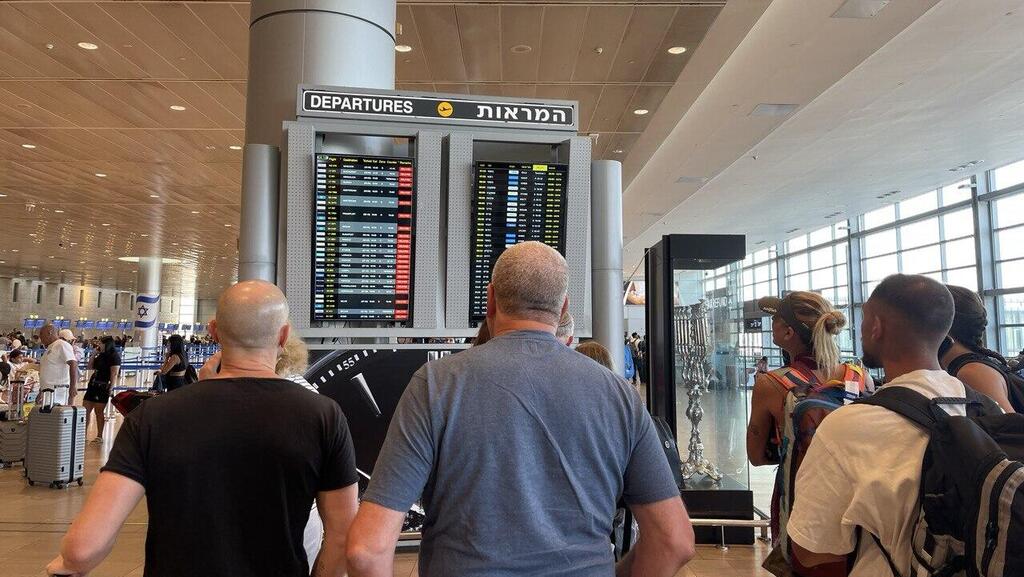Getting your Trinity Audio player ready...
The IDF launched an attack in Lebanon on Sunday after receiving intelligence indicating Hezbollah was planning to strike strategic facilities in northern and central Israel. Strike drones and hundreds of rockets were fired at the Galilee and Golan, Acre, Ein HaMifratz, Ma'alot, and the Safed area – sparking outrage in the north over the decision to launch a preemptive strike only when the central part of the country is threatened. "We don't count,” some said.
The heads of three municipal councils in the north said they would sever contact with all government officials until there is a 'full and complete solution' for the residents and children of the northern border communities, which includes full security for the return of the evacuees from their homes, guaranteeing the safety of all residents and approval of an economic plan for the rehabilitation of the north. “We haven’t interested you for 10 and a half months, and from now on, you don’t interest us. Don’t call, don’t come, don’t send messages. We have managed alone until now, we will manage,” according to a joint statement by Mateh Asher Regional Council head Moshe Davidovich, Metula Mayor David Azoulay, and Upper Galilee Reginal Council Giora Zaltz.
"Even if we destroyed 6,000 missiles, that’s only 3% of their [Hezbollah's] capabilities. The threat is only growing," said Giora Zaltz, head of the Upper Galilee Regional Council. "The reality today is that Israel's border has moved 40 km south. We continue to lose more and more parts of the north with each passing week."
"The prime minister made northern residents feel bad this morning. In a week, we're supposed to start the school year. We must find a way to restore security to the residents of the north," he added.
"Kiryat Shmona’s fate is the same as Tel Aviv's. The State of Israel launched a preemptive strike for the residents of the central part of the country, while the residents of the north have been living under fire for 10 months, far from their homes and families," Matan Dudian, a representative of the evacuees from Shlomi, argued.
"Unfortunately, the prime minister places no value on the dozens of dead and injured in the north,” he added. “He hides behind a failed defense minister, abandons the northern border and its residents, and simply doesn't care if our blood is spilled."
Dror Gavish, one of the displaced from Kibbutz HaGoshrim, said the people of the north feel invisible. "We need to see reality – they [the government] don’t really see us. The government operates solely according to what’s politically beneficial for them. The north’s neglect doesn’t incur political costs, so they’re at peace with it."
“They won't budge an inch until they pay a political price," he said. “Or, if you ask me, until they're replaced by a government that will have to do a better job. But even those who don’t want to change the government need to understand that they won't risk a full-scale war with Hezbollah and Iran unless they have a good political reason."
In contrast, Nitzan Peleg, head of the Lower Galilee Regional Council, praised the strike and called for Lebanon to be held accountable. "This is a very important action and intelligence that prevented a major disaster in the central region," he said.
“What the folks here in the north and we on the border are living through is like a buffer zone. Lebanon is responsible for this entire situation. It’s unthinkable people in the Sea of Galilee are being pulled out of the water while people enjoy the beaches in Lebanon."
Moshe Davidovich, head of the Mateh Asher Regional Council, said, "I can understand that action is taken to ensure that residents of the center aren't harmed. But we aren't being taken care of. And if this becomes the catalyst that leads to the start of a campaign that restores routine – so be it."
"Quite a few eyebrows were raised when I said I’d be happy if the airport was shut down, out of a desire for the country's residents to feel what it’s like and have empathy," he continued. "We woke up to another intense morning.”
“This pressure that's been slightly released needs to clarify to the government that it's time to put an end to this and resolve the issues. We need to get back to normalcy. We’re desperate for it," he said.





